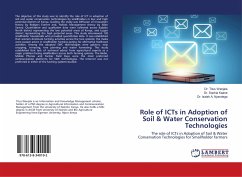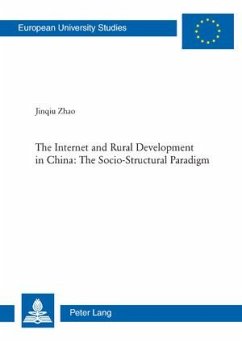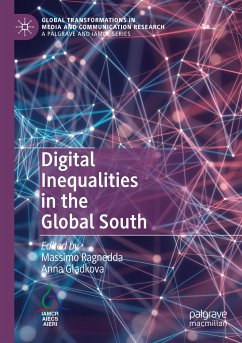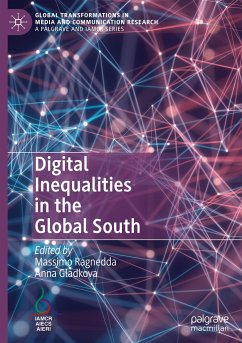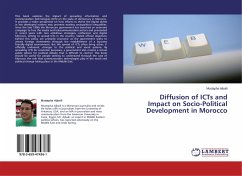
Diffusion of ICTs and Impact on Socio-Political Development in Morocco
Versandkostenfrei!
Versandfertig in 6-10 Tagen
36,99 €
inkl. MwSt.

PAYBACK Punkte
18 °P sammeln!
This book explores the impact of spreading information and communication technologies (ICTs) on the state of democracy in Morocco. It provides a wider perspective on how efforts to shrink the digital divide in less developed nations may promote existing sociopolitical inequalities. Since the late 1990s the Moroccan government has launched an extensive campaign to free the media and telecommunication sectors and proceeded in recent years with two ambitious strategies, e-Morocco and digital Morocco, aiming to spread ICTs in the country. Stated official objectives behind this policy are primarily...
This book explores the impact of spreading information and communication technologies (ICTs) on the state of democracy in Morocco. It provides a wider perspective on how efforts to shrink the digital divide in less developed nations may promote existing sociopolitical inequalities. Since the late 1990s the Moroccan government has launched an extensive campaign to free the media and telecommunication sectors and proceeded in recent years with two ambitious strategies, e-Morocco and digital Morocco, aiming to spread ICTs in the country. Stated official objectives behind this policy are primarily economic as the government seeks to attract foreign investments through the establishment of a business friendly digital environment. But the spread of ICTs often bring other, if officially undesired, changes to the political and social systems. By spreading ICTs for economic purposes, a government also creates a virtual public sphere for political debate that is difficult to control. This book should be useful for people seeking to understand through the case of Morocco the role that communication technologies play in the social and political change taking place in the Middle East.






